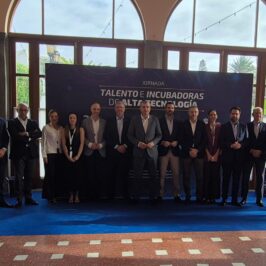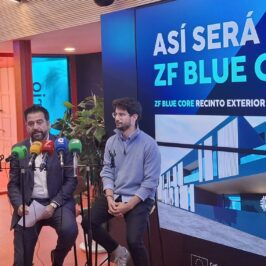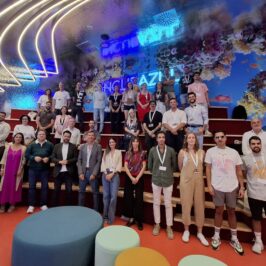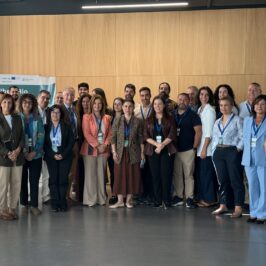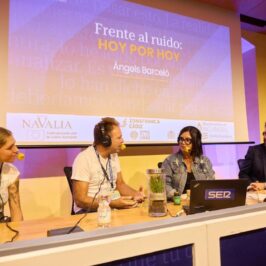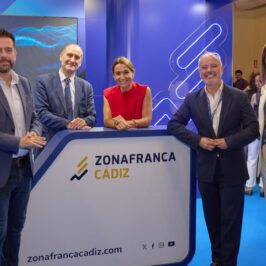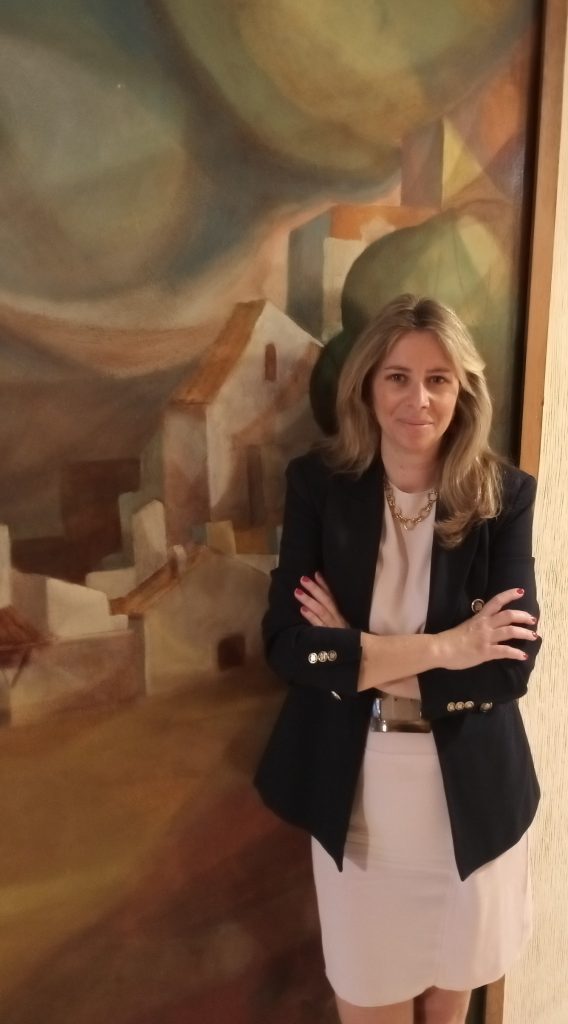
María Leflet Estrada is an Incubazul mentor in commercial law and digital law.
With a degree in Law from the University of Seville and a Master's Degree in Digital Law and New Technologies from the University of Salamanca, this Sevillian "has gradually fallen in love with Cádiz for years, because of its wonderful old town, its incredible beaches or its carnival” believes that it is “lucky to be a mentor of the high-tech incubator of a city like Cádiz”.
Maria Leflet considers that "the blue economy offers numerous opportunities for economic growth" and that "without the blue economy the future will not be sustainable".
Incubazul's mentor, however, is critical and warns that "SDG 14 established 10 goals for the protection and restoration of the oceans and, despite this, it is the one that has received the least investment worldwide so far" .
In her professional experience, her specialization in international trade stands out, being selected as a collaborator of the Initiation Plan for Foreign Promotion, of ICEX and Chambers and in Young Andalusians for Internationalization, of Extenda. Part of her career has been directed towards creating the Department of Foreign Trade in various companies. She has worked in the Andalusian Council of Chambers of Commerce, advising on aid and managing European Projects.
Leflet Estrada responds to the Incubazul questionnaire.
What are your areas of specialization?
I dedicate myself to legal advice, especially startups, in commercial matters and especially legaltech. The latter is still the great unknown, and without a doubt one of the most important to get a startup off the ground. The legal texts that a digital platform must have, compliance with the GDPR or the rules that govern e-commerce are issues that we work on daily at Incubazul with entrepreneurs.
What are the main challenges faced by entrepreneurs in the sustainable economy in general and in the blue economy, in particular?
Nowadays, entrepreneurs assume challenges related to how to cope with these continuous moments of uncertainty, find a good work team that aligns with their interests, gain a coveted niche in the market by offering something different from what already exists, and, very important, know how to face the growth of your business and not leave it stagnant.
But, in any case, entrepreneurs should not see all these obstacles as a failure, but rather as a situation to overcome that will undoubtedly make them grow more.
In the case of the blue economy, moreover, the great challenge for entrepreneurs is that it continues to be a very minority economy. SDG 14 established 10 goals for the protection and restoration of the oceans and, despite this, it is the one that has received the least investment worldwide so far, and the least prioritized by Spanish companies in 2022.
However, the blue economy offers numerous opportunities for economic growth, whether through activities such as aquaculture, sustainable fishing or coastal tourism, many of them reflected in the projects that are hosted by Incubazul. Without the blue economy the future will not be sustainable.
What does it mean to be a mentor at Incubazul?
For me it has been a great challenge from the beginning. I also believe that matters relating to digital law, due to its constant evolution, imply continuous updating by the professionals who are dedicated to it in order to offer entrepreneurs the legal support they need.
Of course, learning during mentoring is mutual, it works both ways, I also learn a lot from them.
What do you think you can contribute to incubated companies?
Virtually all the incubated companies that I mentor are very concerned about complying with all the corresponding legal regulations in order to carry out their project, for example, in relation to web pages or digital platforms. For this reason, I always try that, after my mentoring, they have understood what the regulations require of them and can have a general vision.
The workshops and masterclasses that we give throughout the incubation process also help us to achieve this goal.
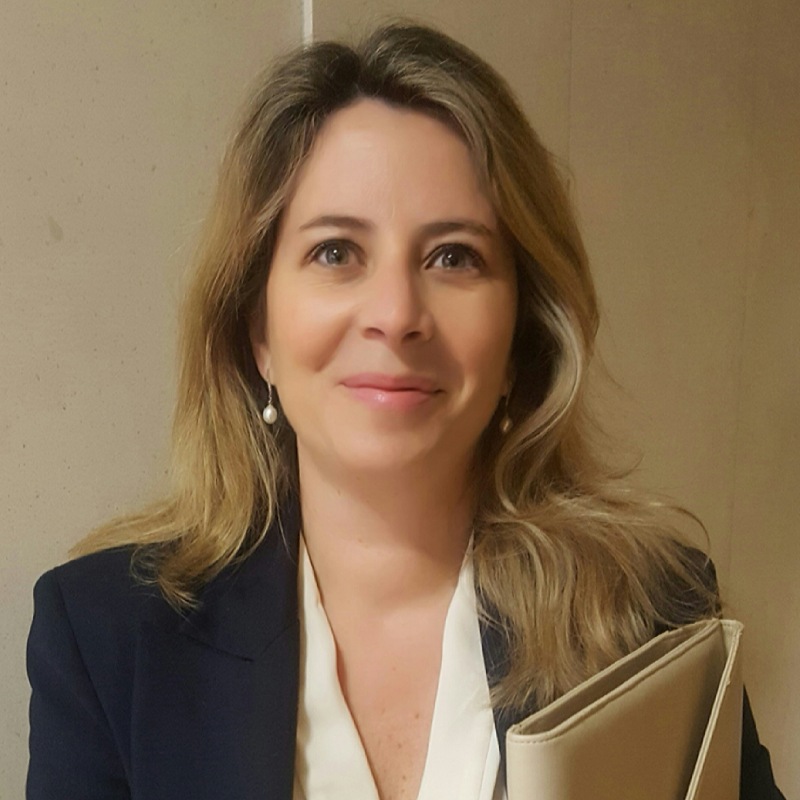
How do you accompany startups during the acceleration process?
Unlike most of my colleagues, who are head mentors of the incubated projects, both my partner Marina Jiménez and I form the team that provides legal support to all entrepreneurs.
We work with them from the beginning on all the questions they have regarding, for example, the ideal legal form for each entrepreneur, or, in my case, how to adapt data protection to each project. Our main objective is to serve as constant legal support for them.
Would you encourage entrepreneurs to join Incubazul? Why?
Of course! It is a unique opportunity to be able to create a project or advance even further in it, since there is room for both projects in the seed phase (seed phase) and others in a more mature phase. The program works very dynamically and actions such as workshops and masterclasses are constantly being developed to continue training entrepreneurs.
At all times, they try to enhance the strengths of each project and receive a 100% personalized treatment based on it. In addition, the level of professionals who provide support is very high, both as mentors, as well as the Zona Franca and Telefónica teams.
This High Technology Incubator Project for the promotion of innovation and technology transfer to microSMEs in the blue economy sector in Andalusia “[BlueEcoIncuba x Logistical]Tech = ZONA BASE – INCUBAZUL 2.0” is 80% financed by the European Regional Development Fund within the Pluriregional Operational Program of Spain FEDER 2014-2020 OP. “A way of making Europe” within axis 3: Improving the Competitiveness of SMEs, Thematic Objective 3 Improving the competitiveness of small and medium-sized enterprises, and investment priority 3 Promotion of entrepreneurship, in particular, facilitating the economic exploitation of new ideas, and promoting the creation of new companies, also through incubators.”




